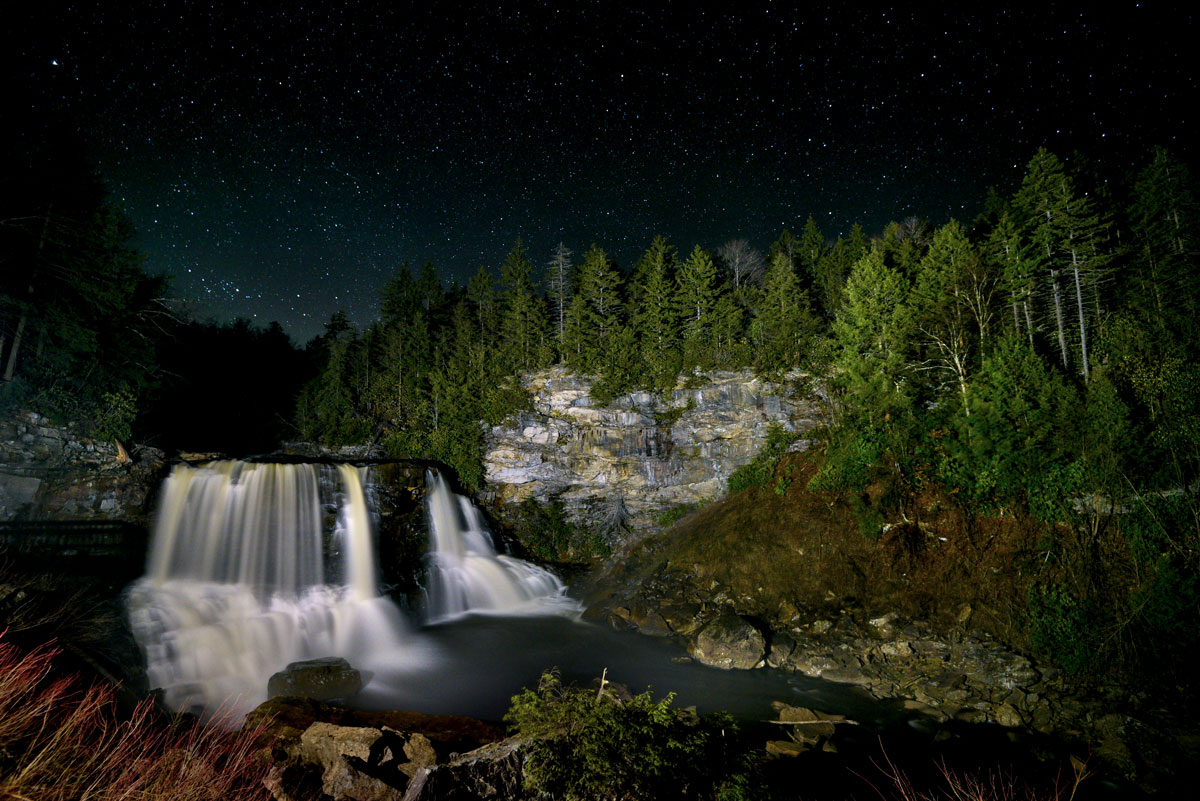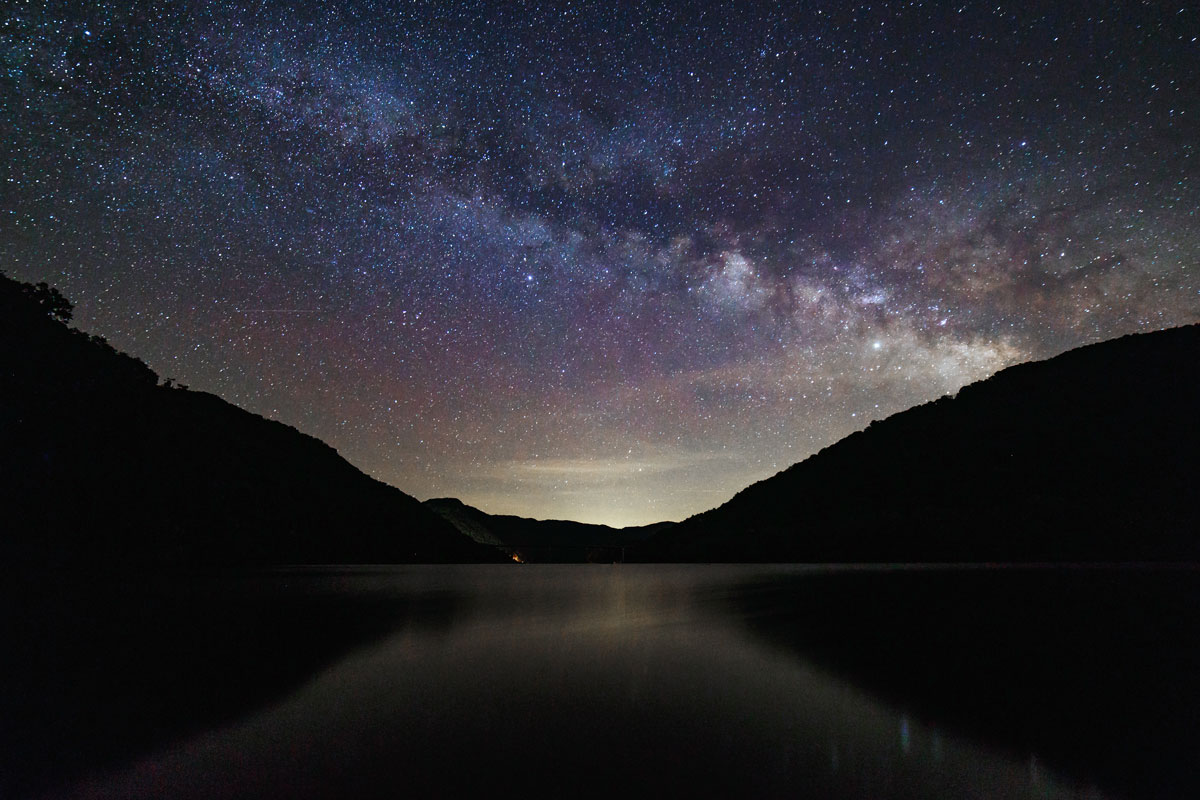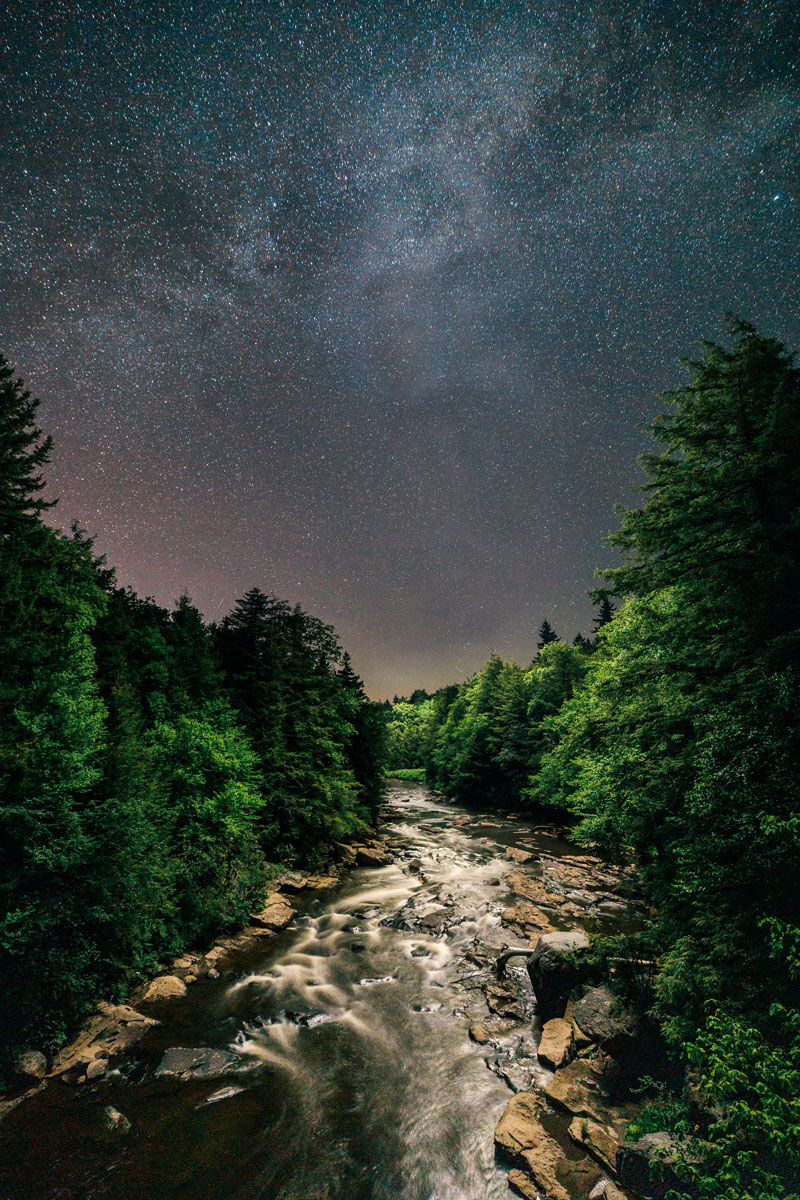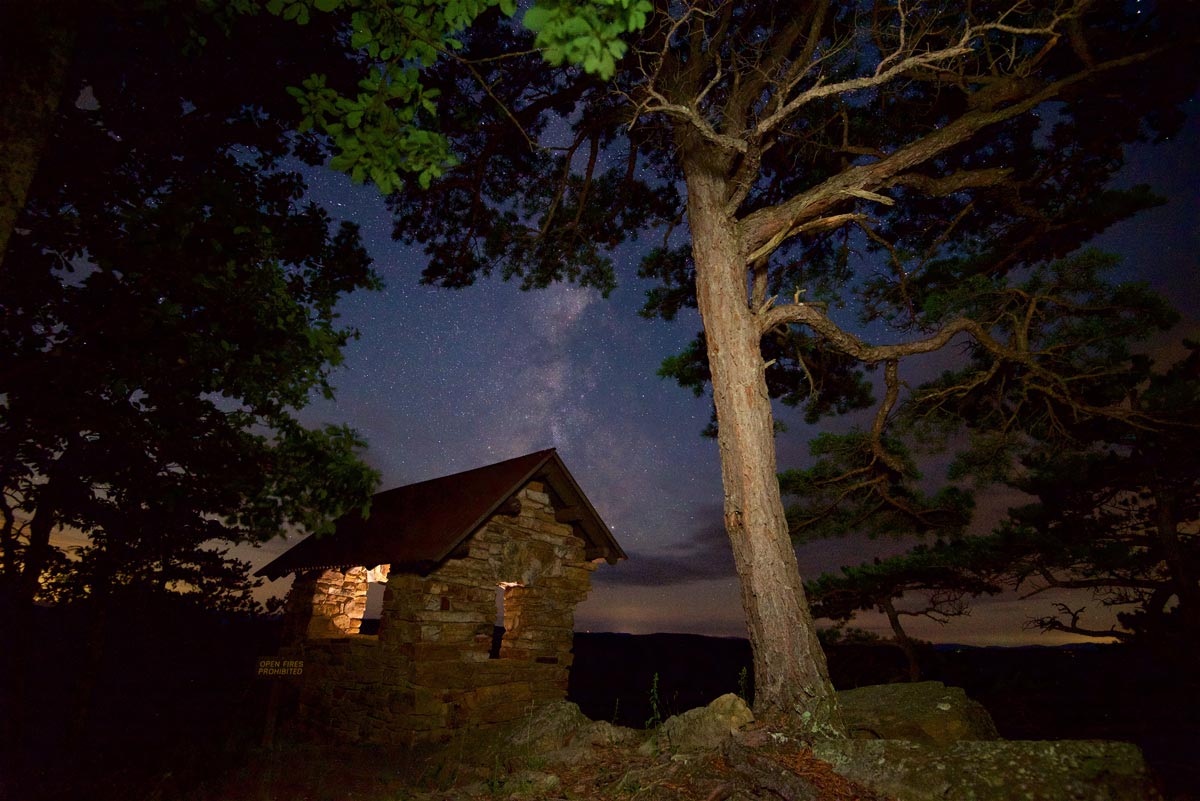8 West Virginia stargazing spots you don’t want to miss this summer
When it comes to stargazing or any kind of amateur astronomy you definitely don’t want to be left in the dark. Sure, you can see stars almost anywhere, but you need a trained eye and a little bit of planning to truly enjoy the awe and wonder of the night sky.
Lucky for you, West Virginia has some of the darkest skies on the east coast, making the Mountain State one of the best places in the region for stargazing.
Ready to give it a try?

You need to escape the city lights if you want to see stars like these
Whether you live in a big city, small town or out in the country, there’s nothing quite like looking up at night and seeing a canopy of stars gazing back at you from light years away.
Unfortunately, most people never get to experience a clear night sky free of light pollution. That’s why stargazers flee their sleepless cities to see unobscured night skies at national parks, state parks, state forests and other natural areas.
West Virginia has several state parks and forests perfect for stargazing. Here’s what you need to know about them and few tips for planning a stargazing trip this summer.
Watoga and Droop Mountain Battlefield state parks and Calvin Price State Forest
Deep in the remote mountains of Pocahontas County, Watoga State Park is an official Dark Sky Park, a fancy way of saying the area has exceptional starry nights. The overlook at the Ann Bailey Trailhead offers a spectacular view of the valley below, distant mountains and an endless sky. Stargazers should inform park headquarters when visiting after 10 p.m. Plan a weekend trip to Watoga and visit nearby Calvin Price State Forest and Droop Mountain Battlefield State Park for even more dark sky viewing opportunities. These two areas are included in Watoga’s Dark Sky Park designation.
Blackwater Falls State Park
Blackwater Falls State Park may be best known for its magnificent waterfalls and winter sports, but one of its standout attributes is only visible at night. Set high in the Allegheny Mountains, the park is far from any city lights that would dim its night sky, making it an ideal place for stargazing. In fact, the park is working on obtaining a Dark Sky certification, which is expected to draw astronomy enthusiasts and other nature lovers. The park hosts stargazing events throughout the year, including a Perseids Meteor Watch and an annual Astronomy Weekend. If you want to survey the night skies on your own, the Harold Walters Nature Center is a great place to start. You can pick up a pass for after-hours viewing at the nature center.
Cass Scenic Railroad State Park
Although it is not a Dark Sky Park, Cass Scenic Railroad State Park, located near the National Radio Quiet Zone and Green Bank Observatory, is perfect for taking in stars from every angle. The clear night sky here is arguably one of the most jaw-dropping spots in Almost Heaven. Early summer is a great time to visit, but double up and plan a trip in the fall and enjoy a scenic train ride to the top of Bald Knob.
Seneca State Forest
How would you like to have your own private viewing area for a truly cosmic experience? Seneca State Forest offers overnight lodging in its Thorny Mountain Fire Tower. The 65-foot tower provides stunning 360-degree views of the forest and unobstructed views of the night sky. The rustic lodging is equipped with cots so all you need is your sleeping bag (and maybe some binoculars and a camera!).
North Bend State Park
The best sky viewing area at North Bend State Park are the meadows at the Cokeley Campgrounds. The park typically posts a summer viewing schedule, which can be found online.
Twin Falls Resort State Park
Twin Falls Resort State Park has two ideal locations for stargazing, one at the ballfield and another at the old farm on Still Run Ridge trail.



How to plan a West Virginia stargazing trip
You don’t need much to enjoy a West Virginia stargazing trip, but here are 12 tips to help you get the most out of your time under the night sky.
- Plan to visit when there’s a new moon. If you aren’t able to line up your visit with a new moon, you can enjoy great stargazing conditions before the moon rises over the horizon or after it sets.
- Check the weather to make sure you’ll have clear or semi-clear skies.
- If you want to enjoy the night sky with other stargazing enthusiasts, check WVstateparks.com for upcoming stargazing events.
- Don’t worry about bringing a telescope, binoculars or other visual aids if you don’t already have one. There’s plenty to see with the naked eye!
- If you have a camera and tripod, bring them. With a simple long-exposure shot, you can take stunning photos of the night sky to help you remember your trip.
- Bring a blanket, layered clothing, a chair or mat to help you stay comfortable outside.
- Purchase a night sky field guide to help you identify stars. Sky maps can also be download for free at skymaps.com.
- Leave No Trace.
- Be safe and don’t drive late at night. If you’re stargazing in or near a state park or forest, book a campsite, cabin or lodge room and spend the night.
- Tell a friend or relative where you’ll be and notify the park office in advance that you’ll be in the park at night.
- Bring a flashlight while walking to your destination, but don’t shine it around other stargazers.
- Avoid standing near ledges or other drop-offs after dark.
For more dark sky viewing tips, visit darksky.org. Are you ready? Let’s go stargazing!
Book Now